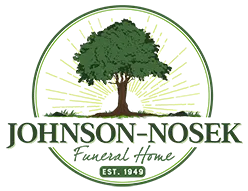Funeral Home Innovations: Eco-friendly Options


In a world increasingly conscious of environmental impact, the funeral in homes in Riverside, IL, the industry is not immune to the need for transformation. Various eco-friendly alternatives reshape end-of-life services, from biodegradable coffins to carbon-neutral cremations, signifying an emerging trend towards “green” goodbyes.
Traditional funeral practices often involve methods that contribute significantly to environmental degradation. Embalming fluids contain harmful chemicals, such as formaldehyde, that can leach into the soil, and cremation releases carbon dioxide into the atmosphere. Consequently, many services offer innovative, eco-friendly options to honor loved ones that reflect their environmental values.
One significant innovation is the introduction of biodegradable caskets. These burial containers, made from materials like bamboo, willow, or recycled paper, decompose naturally over time, leaving a minimal environmental footprint. The shift toward such materials reduces deforestation caused by conventional hardwood coffins, aligning burial practices with sustainability principles.
Another environmentally conscious option for gaining traction is aquamation, also known as alkaline hydrolysis. This process uses a mixture of water and alkali to accelerate decomposition, transforming the body into a sterile liquid and bone cremain. Aquamation is touted as an energy-efficient alternative to cremation, consuming about 10% of the energy and producing significantly fewer carbon emissions.
Furthermore, funeral homes offer options to integrate remains into nature in a respectful, life-giving manner. Unlike traditional cemeteries, green burial grounds encourage decomposition as a return to nature. These cemeteries prohibit using chemical preservatives and non-biodegradable materials, creating habitats for local flora and fauna.
Innovations like the Bios Urn further integrate the cycle of life and death. This biodegradable urn contains a tree seed, and the cremated cremains nourish the growing plant. As a result, loved ones become living memorials that contribute positively to the ecosystem.
Another promising development is the rise of eco-friendly cremation options, such as bio-cremation and recompositing. Bio-cremation, like aquamation, uses water and alkali, while recompositing, or “human composting,” transforms human remains into nutrient-rich soil, further contributing to life’s cycle.
These innovations align with increasing environmental awareness and respond to the desire for personalized and meaningful ways to commemorate lives. These green options allow people to express their ecological values in their final farewell, leaving a legacy of respect for the planet they cherished.
The emergence of eco-friendly funeral innovations represents a significant step towards sustainability in an industry often overlooked in environmental discussions. As we strive to reduce our carbon footprint, extending that consideration to our end-of-life choices seems fitting. Green goodbyes provide solace in honoring the deceased and preserving the world they leave behind.
To conclude, green innovations in funeral homes are not just a passing trend but a meaningful shift reflecting our collective responsibility to the environment. As we continue to innovate and refine these practices, we can ensure that our final act on this Earth contributes to its health and sustainability, a fitting tribute to the life cycle. Don’t hesitate to contact us with questions or concerns – we’re here to help! At Johnson-Nosek Funeral Home and Cremation Services, we’re here to help with funeral homes in Riverside, IL


